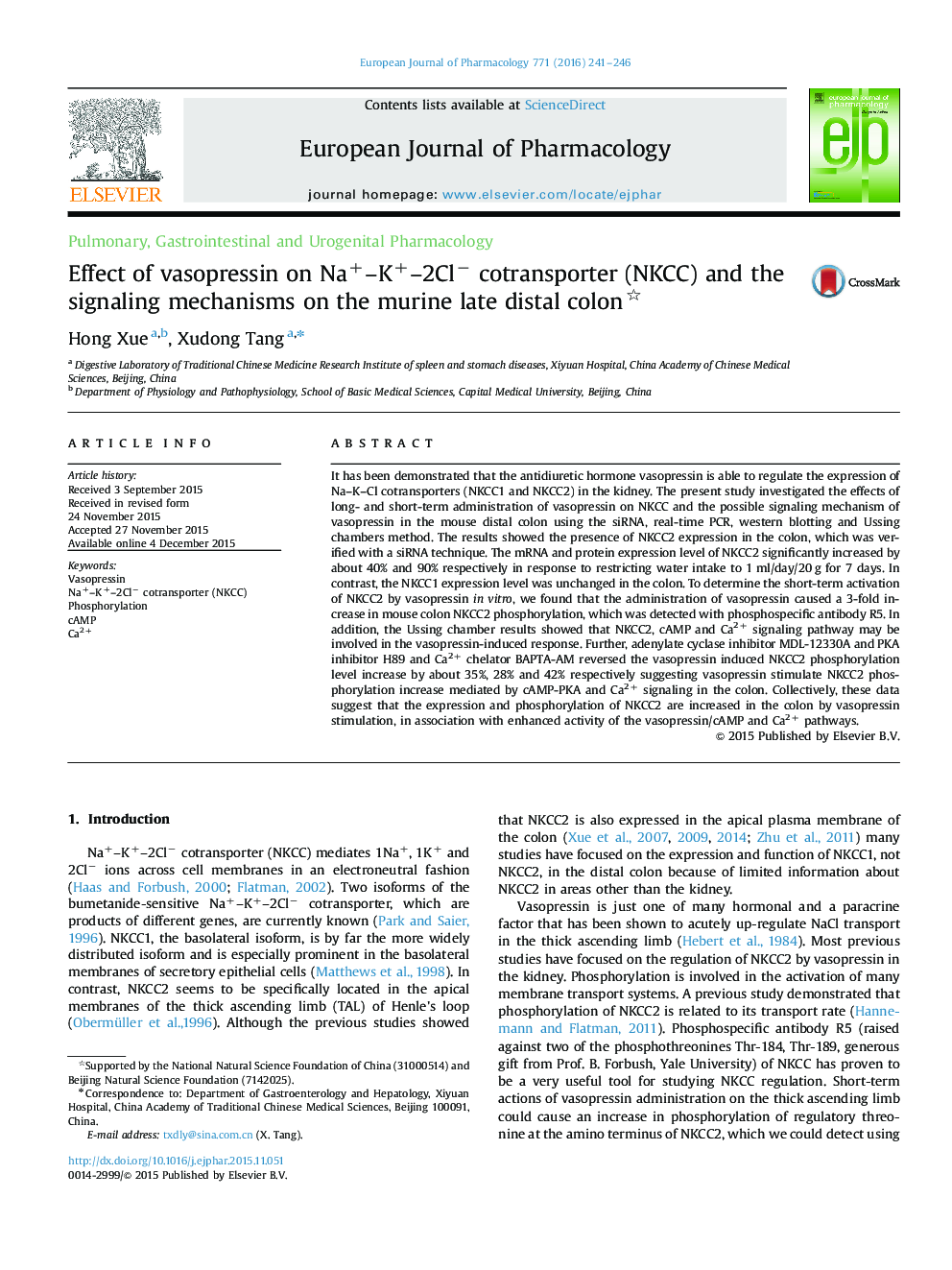| Article ID | Journal | Published Year | Pages | File Type |
|---|---|---|---|---|
| 2531040 | European Journal of Pharmacology | 2016 | 6 Pages |
It has been demonstrated that the antidiuretic hormone vasopressin is able to regulate the expression of Na–K–Cl cotransporters (NKCC1 and NKCC2) in the kidney. The present study investigated the effects of long- and short-term administration of vasopressin on NKCC and the possible signaling mechanism of vasopressin in the mouse distal colon using the siRNA, real-time PCR, western blotting and Ussing chambers method. The results showed the presence of NKCC2 expression in the colon, which was verified with a siRNA technique. The mRNA and protein expression level of NKCC2 significantly increased by about 40% and 90% respectively in response to restricting water intake to 1 ml/day/20 g for 7 days. In contrast, the NKCC1 expression level was unchanged in the colon. To determine the short-term activation of NKCC2 by vasopressin in vitro, we found that the administration of vasopressin caused a 3-fold increase in mouse colon NKCC2 phosphorylation, which was detected with phosphospecific antibody R5. In addition, the Ussing chamber results showed that NKCC2, cAMP and Ca2+ signaling pathway may be involved in the vasopressin-induced response. Further, adenylate cyclase inhibitor MDL-12330A and PKA inhibitor H89 and Ca2+ chelator BAPTA-AM reversed the vasopressin induced NKCC2 phosphorylation level increase by about 35%, 28% and 42% respectively suggesting vasopressin stimulate NKCC2 phosphorylation increase mediated by cAMP-PKA and Ca2+ signaling in the colon. Collectively, these data suggest that the expression and phosphorylation of NKCC2 are increased in the colon by vasopressin stimulation, in association with enhanced activity of the vasopressin/cAMP and Ca2+ pathways.
